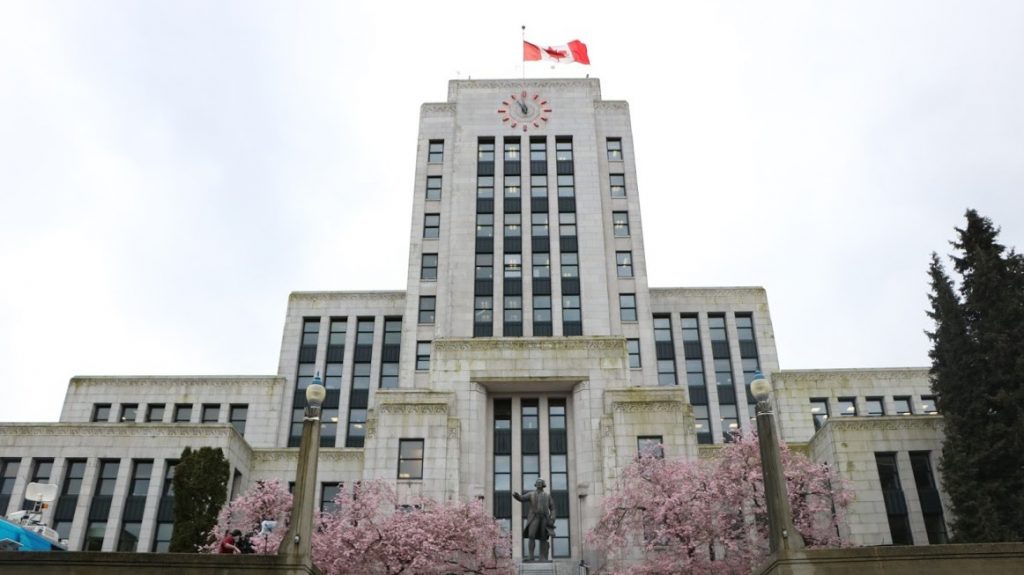
Council may soon be dealing with the motion presented by NPA Councillor Colleen Hardwick to reconsider the duplex rezoning passed in the last days of the previous council:
BE IT RESOLVED THAT the Zoning and Development By-law No. 3575 and related changes to Strata Title Polices for RS, RT and RM Zones and RS-7 Guidelines, and RS-7 Guidelines be referred to public hearing for reconsideration by Council at the earliest date possible while giving the minimum required notice under the Vancouver Charter.
What we learn about the alignment of votes and the messages sent will be more significant than the motion. Each councillor will be sending a message about how seriously they take the housing crisis. Is process more important than outcomes? Is the housing crisis not so severe that we can delay or even avoid action? Is preserving neighbourhood character our real priority? (What are you watching for?)
Then there are the power dynamics of the new council. Who will align with whom? What is the new working majority? Is the mayor part of it?
We may know the answer in hours. But my hunch is that the motion will be punted, somehow ending up in a city-wide planning process.
But there is one thing that should be on the record. Hardwick’s motion states right at the beginning:
There was no meaningful public consultation prior to referral to public hearing to amend the RS zones and related strata guidelines as proposed in the Policy Report dated June 27, 2018;
And of course that’s true. The key word is ‘meaningful’ – as defined by one of my Price Tags Laws of Public Consultation: “A consultation process is only meaningful and effectively conducted l if it comes up with a conclusion I agree with.”
The motion is also correct that there was no extensive process prior to the introduction of this ‘quick action’ proposal for duplexing, since the extensive process had occurred as part of the larger housing strategy. Think of it like this: If the council approves a city-wise planning process, one that involves tens of thousands of people, every neighbourhood and many years, will it also require similarly extensive processes for every action that follows from the adoption of the plan?
That’s what this is in part about: to introduce a requirement for process on every action, large and small, that could change the character and scale of existing neighbourhoods. To slow things down. To give existing residents a right of veto. To send a message that the housing crisis is not so severe as to quickly require a change in the status quo.
For the record, here is that process for the Housing Strategy. Depending on what happens with Hardwick’s Motion 10, we’ll see whether very much of it mattered.
Housing Vancouver Strategy (2018 – 2027) and 3-Year Action Plan (2018 – 2020)
Housing Vancouver: Our Process and Key Milestones
The ideas, objectives, and actions in the Housing Vancouver Strategy are the result of over a year of intensive community and partner engagement and public consultation. There have been a number of updates to Council on the evolving policy, targets, and engagement process to date, as well as a public report to Council on the Housing Vancouver Emerging directions as part of the process to arrive at a final strategy. In summary, the process included:
• Engagement with five Creative Advisory groups, comprised of local experts and stakeholders, in order to determine best practices and innovative ideas around key housing issue areas
• Multiple conversations with key stakeholders over 14 months, including the Mayors’ Advisory Committee, the Development Advisory Group, the SRO Task Force, and the Urban Development Institute
• The Re:Address Conference and Re:Address Week in October 2016, which brought together local and global experts on housing, affordability, and community development to discuss global issues around housing and cities. It successfully engaged both the public and partners, with over 35 speakers representing Vancouver, Calgary, Winnipeg, Toronto, San Francisco, New York, Edinburgh, Amsterdam, Glasgow, Vienna, Melbourne, Sydney, and Tamaki Makaurau (Auckland)
• Engagement of national stakeholders in a series of discussions in fall 2016 hosted by the Federal Ministry of Finance, focusing on challenges and opportunities for expanding housing supply in Canadian cities experiencing serious housing affordability issues. The City also made a comprehensive submission to the Federal Government on their National Housing Strategy, in early November 2016
• Broad public engagement with Vancouver residents, including two on-line surveys which drew over 10,000 responses; The Big Conversation, a one-day workshop which saw nearly 200 Vancouver residents from diverse backgrounds come together to discuss their personal housing challenges, and their visions for the future of housing in Vancouver; and embedded engagement in planning processes and open houses across the city
• Deep dialogue and engagement with government and non-profit housing leaders from Vienna, Austria in June 2017 regarding the importance of social housing and the role of government in supporting long-term housing affordability. A week of events with the delegation concluded with a workshop comparing the Austria and Vancouver approaches to housing delivery, with attendees including the Vienna delegation, City of Vancouver, and local academic partners from Simon Fraser University and the University of British Columbia
• Consultation with key local experts and stakeholders during the process of drafting and reviewing the final Housing Vancouver strategy and 3-year action plan. This included a review panel consisting of academic experts, key local stakeholders and practitioners, and policymakers from the region and province tasked with providing detailed comment on the draft strategy document; the Housing Vancouver stakeholder launch event, where over 80 stakeholders were provided the opportunity to comment on key actions from the 3-year Housing Vancouver Action Plan; a working session on data and monitoring with local academic and data experts; and meetings with additional key stakeholders including industry representatives, City of Vancouver Renter and Urban Aboriginal Advisory Committees, and government and non-profit partners












